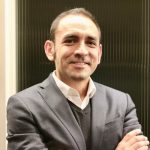Dr. Yulia Krylova

Yulia Krylova joined the Terrorism, Transnational Crime and Corruption Center (TraCCC) in 2015 as a PhD student in Political Science. Her doctoral research explored anti-corruption policies and collective action by entrepreneurs and business associations in Russia. After the successful defense of her dissertation, Yulia was involved in several World Bank’s projects on international development. As a researcher, she also participated in the TraCCC projects on illicit business raiding in Russia, illicit cigarette smuggling in Eastern Europe, and sex trafficking by international gangs in Northern Virginia.
Her research interests include anti-corruption, anti-money laundering, organized crime, and their effects on international development. In 2018, she published her book “Corruption and the Russian Economy: How Administrative Corruption Undermines Entrepreneurship and Economic Opportunities” (Routledge). Her works were also published in such journals as Global Policy, the Journal of Small Business and Entrepreneurship, the Economic Analysis of Law Review, East European Politics, the Journal of Eurasian Studies, the Journal of Contemporary Central and Eastern Europe, and the International Social Science Review. She also wrote several conference reports featuring public events and panel discussions organized by TraCCC on money-laundering in real estate, illicit opioid trade, and the abuse of the international law enforcement and judicial systems by authoritarian states.
Yulia holds a Ph.D. degree in Political Science from George Mason University and a Ph.D. degree in Economics from Saint Petersburg State University. In 2009-2010, she was a Fulbright exchange scholar at Duke University and the Georgetown University Law Center. She remains involved and connected to the Fulbright community through her volunteering work for the Fulbright Network of the World Bank Group and the International Monetary Fund. In addition, she has been a volunteer with the Sustainable Development Committee of the United Nations Association of the National Capital Area. In 2017 and 2018, she also participated as an evaluator for the Young Leaders of the Americas Initiative (YLAI) Professional Fellows Program organized by the Meridian International Center and the U.S. Department of State. Yulia is fluent in English, Russian, and Spanish, and also speaks some German.
Dr. Camilo Pardo

Camilo Pardo-Herrera is an international development scholar focusing on the political economy of development, corruption, political and criminal violence, and Latin America. His doctoral research analyzed criminal networks involved in land grabbing during the civil war in Colombia. He is a current member of TraCCC and has done extensive work on the political economy and crime connected to natural resource extraction in Latin America, Africa, and Asia. His personal research agenda links different forms of organized crime and political violence to development outcomes in the Latin American region. He brings an excellent combination of personal experience designing and implementing national level policy to address organized crime and corruption, a profound commitment for evidence-based policy analysis and design, and strong analytical and methodological capacities to pose and answer complex questions.
He has over 15 years of experience working on natural resource management, human rights issues, and post-conflict reconstruction in the Latin American region. He has done so for national governments, the civil society, academia, and international organizations before and while attending graduate school. He finished his PhD in Public Policy at George Mason University and a Masters degree in Democracy and Democratization from the University College London thanks to a Chevening scholarship awarded by the United Kingdom’s Foreign, Commonwealth and Development Office. He has presented his research––among other places––at the World Bank, the Organization of American States, and the United Nations. He currently teaches the courses on Transnational Security, International Organized Crime and Security in the Americas at the Elliot School of Policy and Government at George Washington University and consults for the World Bank on natural resource management issues.
